

By Aly Diouf, Journalist at LE SOLEIL, Senegal
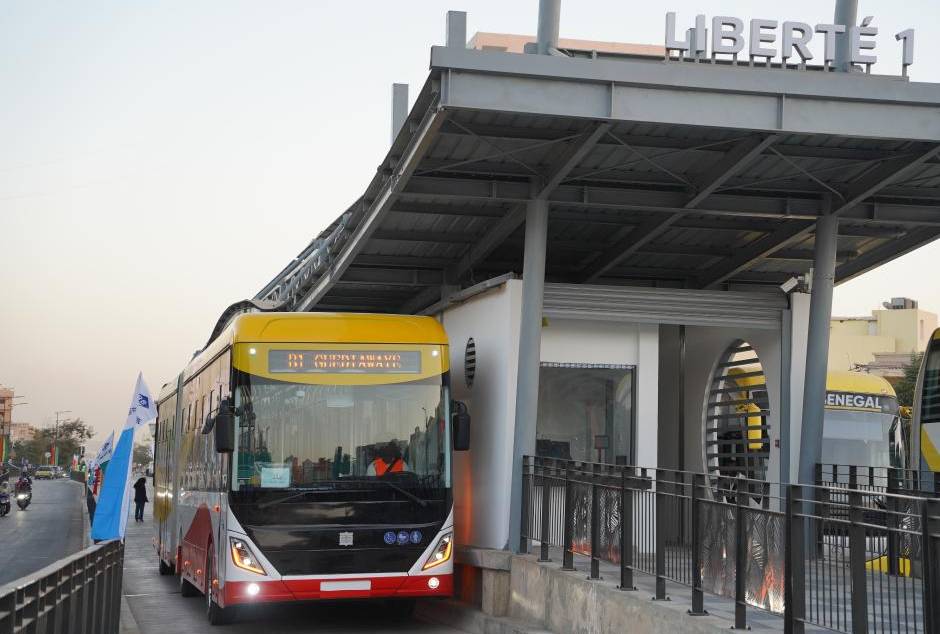
Photo taken on Dec. 27, 2023 shows a bus at a bus station for the Dakar Bus Rapid Transit (BRT) project in Dakar, Senegal. (Xinhua)
On the path to development, the People’s Republic of China intends to leave no partner behind. Beijing has frequently reiterated its commitment to prioritizing mutually beneficial cooperation. To put this in perspective, at the Forum on China-Afirca Cooperation (FOCAC) last September, Chinese President Xi Jinping urged China and Africa to pursue modernization together and elevated their relationship to the “All Weather China-Africa Community with a Shared Future for the New Era.” In his speech, he underscored that modernization is an “inalienable right of all countries.” He argued that global modernization cannot occur without the participation of both China and Africa. According to him, the “joint pursuit of modernization by China and Africa will set off a wave of modernization in the Global South,” and “open a new chapter for a community with a shared future for mankind.”
To translate this vision into reality, President Xi announced “Ten Partnership Actions” for Africa to be implemented between 2025 and 2027. To support their execution, China will provide Africa with financial aid amounting to 360 billion yuan (approximately $50.7 billion) over the same period. The targeted areas include trade, industrial chain cooperation, connectivity, development cooperation, healthcare, agriculture, people-to-people exchanges, green development, and common security. President Xi emphasized China’s commitment to working with Africa to establish a platform for governance experience sharing, a China-Africa knowledge network for development, and 25 joint centers on China-Africa studies. Additionally, China will invite 1,000 members of African political parties to China to deepen exchanges of experience in party and state governance.
In terms of trade, Beijing announced to give all LDCs having diplomatic relations with China, including 33 countries in Africa, zero-tariff treatment for 100 percent tariff lines. This move aims to transform China’s vast market into a significant opportunity for Africa. Furthermore, China plans to collaborate with Africa in developing a pilot zone for deepened China-Africa economic and trade cooperation and launching a capacity-building program for African SMEs. It will also establish a digital technology cooperation center and initiate 20 digital demonstration projects across the continent. Additionally, as part of the “Belt and Road Initiative”, China will implement 30 infrastructure connectivity projects in Africa in partnership with local governments.
According to President Xi, China will issue a joint declaration with Africa to deepen cooperation under the “Global Development Initiative” and undertake 1,000 social welfare"small and beautiful" projects across Africa to improve people’s livelihood. Health is another key area of focus, with plans to create a China-Africa hospital alliance and joint medical centers. China will send 2,000 medical professionals to Africa and launch 20 programs of health facilities and malaria treatment. In agriculture, China will provide Africa with 1 billion yuan (approximately $140 million) in emergency food aid, send 500 agricultural experts to African countries, and establish a China-Africa agricultural science and technology innovation alliance. Moreover, Beijing will encourage two-way investment and enable Africa to retain added value; and create at least 1 million jobs for Africa.
In the realm of cultural and human exchanges, President Xi highlighted China’s plans to establish an engineering technology academy and build 10 Luban Workshops in Africa. Additionally, 60,000 training opportunities will be offered, with a special focus on women and youth. China will also launch 30 clean energy and green development projects in Africa, create a China-Africa forum on the peaceful use of nuclear technology, establish joint laboratories, and promote cooperation on satellite-based remote sensing, lunar and deep-space exploration. In the area of common security, Beijing plans to create a China-Africa partnership to implement the Global Security Initiative, providing Africa with an RMB 1 billion military grant to support African countries in strengthening their armed forces.
Speaking on behalf of the continent, President Bassirou Diomaye Faye, who co-chaired the opening ceremony with President Xi, described the newly announced measures as further proof of China’s unwavering determination to elevate Sino-African cooperation. “Through its numerous programs and initiatives since its inception in 2000, FOCAC has become a model of effective partnership based on dialogue, mutual respect, and joint development,” said the Senegalese president. He also noted that the theme of the summit, “Joining Hands to Advance Modernization and Build a High-Level China-Africa Community with a Shared Future,” is highly relevant, as it seeks to modernize the partnership to achieve common goals despite a challenging global context marked by war, violence, extremism, and a persistent economic and social crisis. “I especially commend the ‘Belt and Road Initiative’, which has significantly contributed to achieving FOCAC’s infrastructure goals, particularly in the fields of ports, airports, highways, and railways. I also acknowledge our achievements in other strategic areas such as agriculture, technical and vocational training, water resources, industry, and healthcare,” he said.
As the world’s second-largest economy, China is Africa’s leading trade partner, with bilateral trade reaching $167.8 billion in the first half of 2024. Trade volume between China and Africa rose from $192 billion in 2019 to $282.1 billion in 2023. To foster a more balanced trade relationship, China has pledged to support Africa in enhancing its export capacity and to simplify the inspection and quarantine procedures for African products exported to China. As the largest developing country, China shares a long-standing tradition of friendship with Africa, rooted in their joint struggle for decolonization and the principles of the Non-Aligned Movement. According to the Dar es Salaam Declaration, China and Africa are committed to pursuing modernization together.
Passing the baton to his Congolese counterpart Denis Sassou Nguesso, President Faye noted that the FOCAC summit opened new avenues with its declaration and the 2025-2027 Action Plan, which is expected to consolidate achievements for the benefit of their people. He proposed accelerating modernization in agriculture to eradicate poverty and achieve food sovereignty, mobilizing financing for infrastructure development, advancing Africa’s industrialization to promote sustainable and inclusive growth, and investing in digitalization by enhancing digital infrastructure, fostering innovation, and supporting youth-driven creative industries, particularly start-ups.
In 2023, the annual flow of outward foreign direct investments (FDI) from China to Senegal amounted to around 58.57 million U.S. dollars. Chinese outward FDI flows to Senegal had peaked at around 213.4 million U.S. dollars in 2020. It is no exaggeration to say that China has played a significant role in Senegal’s development. Beijing has been involved in major infrastructure projects such as the “Ila Touba” highway linking Dakar to Touba, Senegal’s second-largest city, as well as the highway connecting Blaise Diagne International Airport to Thiès and Mbour, the Mbour-Fatick-Kaolack highway, the Foundiougne Bridge, and the Bus Rapid Transit (BRT) system in Dakar. Noteworthy projects also include the Diamniadio Mother and Child Hospital, the Affiniam Dam, agricultural research centers in Sangalkam and Podor, the national data center, the Diamniadio United Nations House, the Grand National Theater, and the Museum of Black Civilizations. Additionally, China has played a key role in Senegal’s fight against COVID-19 and is actively involved in water infrastructure projects, including the renewal of Dakar’s water network.
According to Bakary Séga Bathily, Director-General of Senegal’s Agency for the Promotion of Investment and Major Projects (APIX), “Economic relations between Senegal and China are characterized by mutual cooperation, strategic partnerships, and shared interests.” Currently, 217 Chinese companiesare registered in Senegal. In 2023, the volume of investments approved between China and Senegal reached 665 billion CFA francs (approximately $1.06 billion), with 81 projects creating 9,938 jobs. Prominent Chinese companies such as Twyford Ceramics, Howo, and Sinohydro have established operations in Senegal, contributing to job creation and wealth generation. This is indeed a win-win partnership.
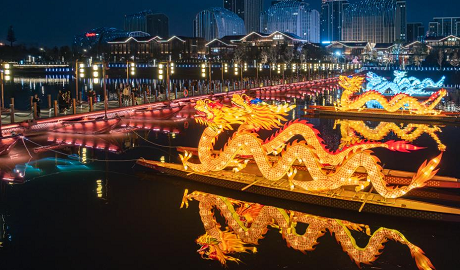
Various festive events held across China to celebrate upcoming Chinese New Year
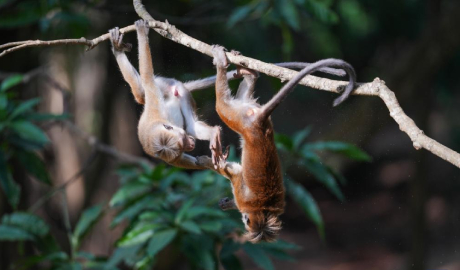
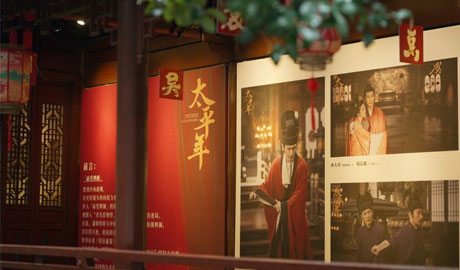
Hit epic drama sparks interest in lesser-studied chapter of ancient Chinese history

Lanterns hoisted to mark upcoming Chinese New Year in Hong Kong
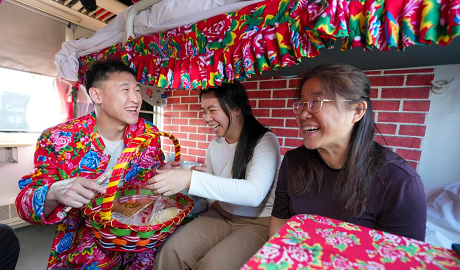
"In-train fair" launched in NE China's Heilongjiang amid Spring Festival travel rush
点击右上角![]() 微信好友
微信好友
 朋友圈
朋友圈

请使用浏览器分享功能进行分享
